Side by side we stood: Soldiers reflect on Independence Day
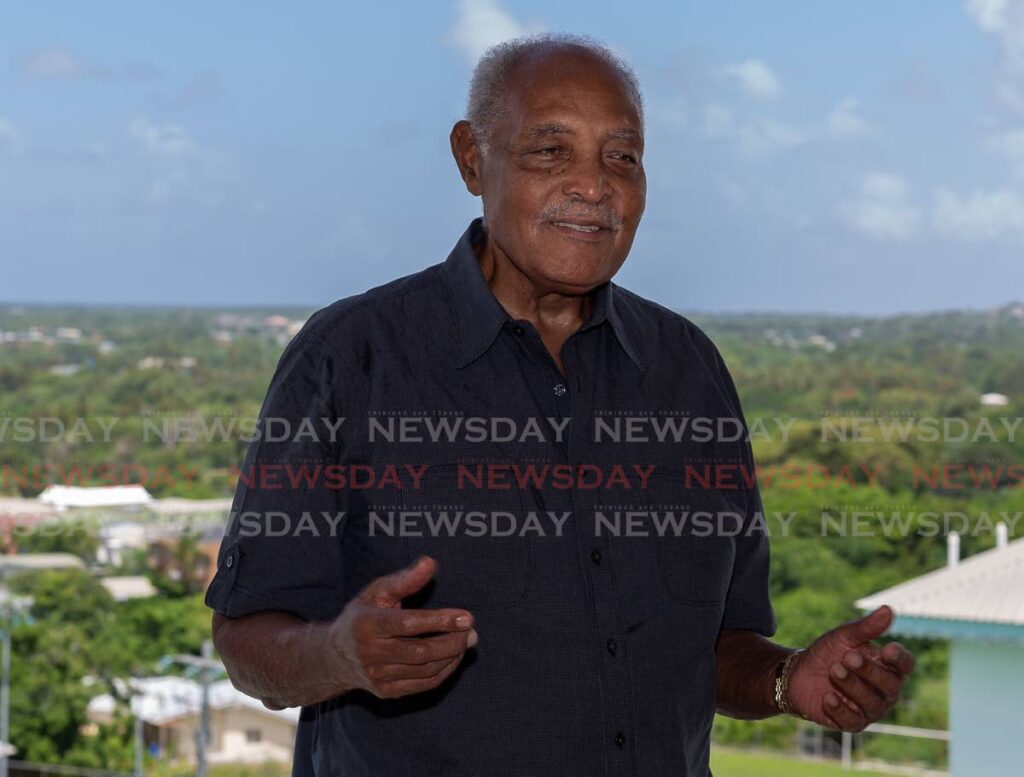
It was a clear, breezy night on August 31, 1962, when friends and soldiers Ralph Brown and Norris Baden-Semper waited to see the TT flag raised for the first time.
While Baden-Semper was on duty at the Red House, Brown was off duty and stood several feet away, among throngs of other spectators gathered to witness history.
Today, 60 years later, 82-year-old Brown, a retired major general, and retired Lt Col Baden-Semper, 83, are the last two surviving officers who were present for TT’s first Independence Day.
Both men have seen their fair share of history.
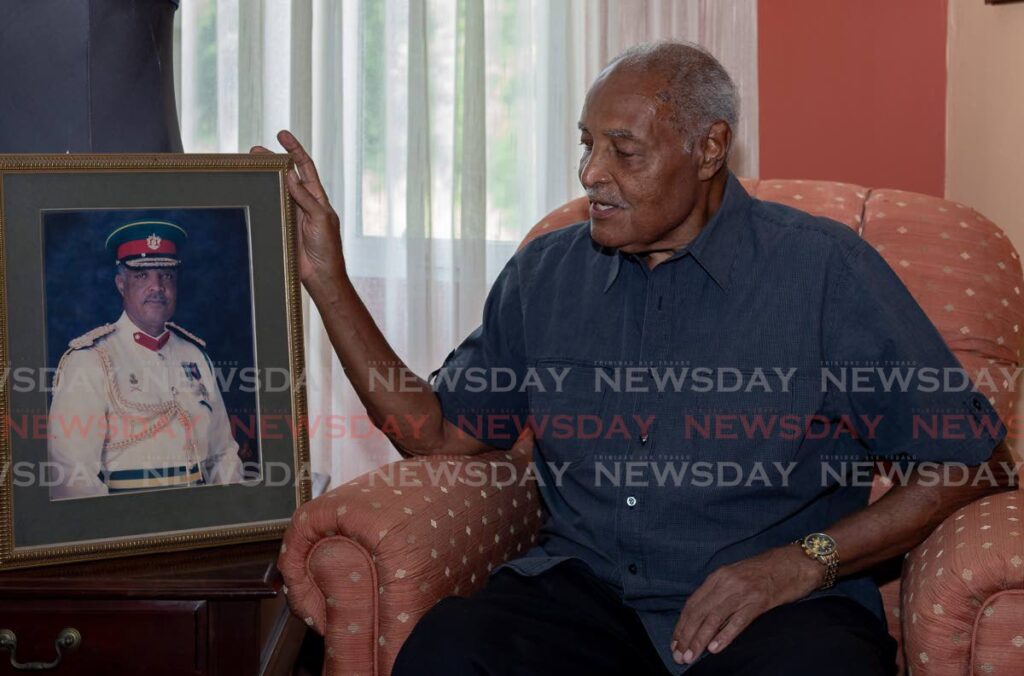
From collecting evidence on the 1970 mutiny to commanding the regiment in response to the 1990 attempted coup, Brown’s military career has made him part of local history on more than one occasion.
While a lot has changed since 1962, the two agree they will never forget the overwhelming pride and joy they felt that night.
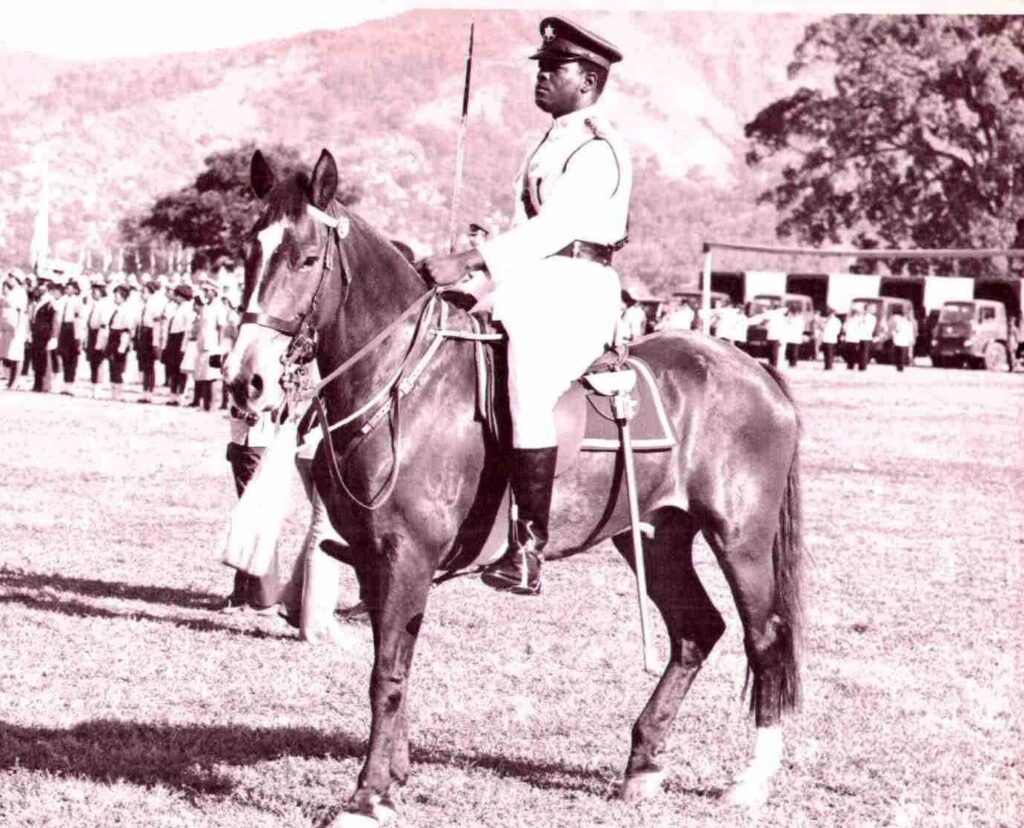
Speaking with Newsday in phone interviews in July, Brown and Baden-Semper reflected on TT’s 60-year journey from Independence to now.
They both agree while TT has changed a lot from the British colony of their boyhood days, ideals of patriotism and unity are needed now more than ever.
Born in Alfredo Street, Woodbrook, during World War II, in 1940, Brown recalls the Trinidad of his childhood as a “hectic place,” owing to the jitters over the global conflict.
While many might know Woodbrook today as a commercial hub by day with an active nightlife, Brown says his neighbourhood was a very different place growing up.
“Woodbrook was purely residential, and there were just a few retail outlets on Ariapita Avenue itself. Just a handful, five or six: but all of Woodbrook at the time and Newtown were residential areas.
“Growing up as a boy in those war years, where the Port of Spain docks are now, the Americans had owned that, and that was handed over pre-Independence back to the government of TT.
“The Americans still occupied Chaguaramas, so there was a lot of American activity during those war years.”
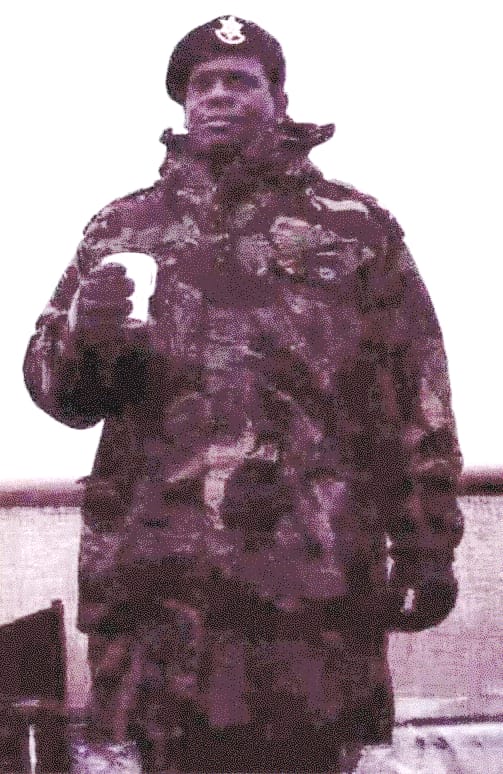
Baden-Semper was born in La Brea and moved to Siparia with his family before they eventually settled in Rapsey Street, St Clair.
He cannot recall much from the wartime days, but remembers colonial Britain’s presence everywhere during his school days.
“We had something called Empire Day, and on Empire Day most of the schools went to QRC grounds, where we all sang Rule Britannia.
“After that we were all given buns and soft drinks, and that happened every Empire Day until 1956...I think, or 1962. But that happened every Empire Day. They (primary school students from all over the country) used to come to QRC and other places too.”
While at QRC, Baden-Semper joined the Cadet Force, where he rose to the rank of corporal.
He says the military life always appealed to him and recalls a conversation with his mother about joining the army years before the regiment was formed.
“By the time I made corporal, I told my mother I wanted to become a commissioned officer in the army, and my mother said to me, ‘But there is no army, son.’ And I said to her, ‘I think very soon there will be one,’ So since then I was interested in it.”
His father, Inskip Baden-Semper, was a veteran of the First World War who fought in the British West Indies Regiment in Egypt and Palestine against the Ottoman Empire.
The elder Baden-Semper retired at the rank of lance corporal, and was not only proud that his son wanted to join the military, but ambitious enough for him to aim for a rank higher than his own.
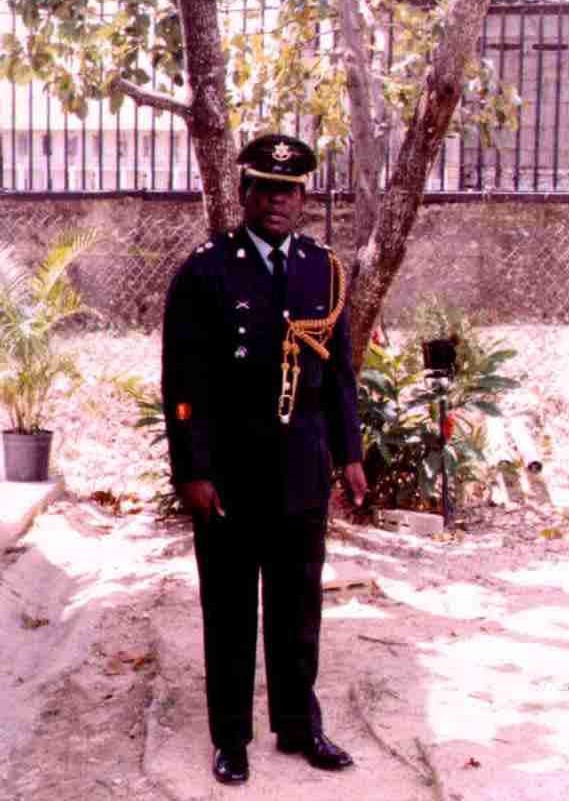
“He was happy to see I was aiming that high, because he was never anywhere near that kind of rank.
“But in those colonial days, black people never made those commissions; all the commissioned officers at the time were white people.
“He was definitely proud. When I finally got through with being a commissioned officer, he was a very proud man.”
Baden-Semper entered the military as a second lieutenant in the West India Regiment, a feature of the short-lived West Indian Federation, which collapsed in January 1962. He was assigned to the regiment’s Jamaican barracks up until August 1962.
He remembers the desire to move away from colonialism at the time.
“People wanted independence, because most people didn’t like to pay so much homage to the Queen. For example, I was a commissioned officer, and after we had our dinner we would toast somebody, the head of state, and we used the Queen...now we toast the President, but in those days we toasted the Queen, and everything was the Queen.”
At that same time Brown entered the regiment as a second lieutenant and was sent to England in 1962 on a training course for officers. He too recalls the call for independence throughout TT, leading up to the country gaining independence in 1962.
“Dr Eric Williams came on the scene in 1956, I think (Williams became chief minister of TT that year), and everything changed thereafter.
“We were all rooting for the West Indies Federation until its collapse in 1962.
“When Dr Eric Williams came on the scene there was this whole new fervour among the people in the entire Caribbean, not just TT.”
Brown and Baden-Semper were among 15 officers in the regiment, nine of whom were Trinidadians.
These included World War II veterans Lt Joffre Serrette and Capt Henry Christopher.
With the excitement for independence at its peak among the public, Brown and Baden-Semper also felt the patriotism in the days leading up to August 31.
While neither was part of the first Independence Day parade, they were both present for the raising of the new TT flag at the Red House that night.
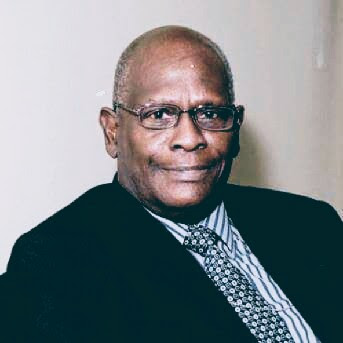
Baden-Semper, who had returned to Trinidad only a week before Independence Day, was assigned to the Red House.
While he was some distance away from the crowd, he clearly heard the roar as the British Union Jack was lowered and the new nation’s flag was raised.
“I was there in my uniform when the bugles were blown, and they lowered the Union Jack. Then the bugles were blown again, and they raised the red, white and black flag.
“The crowds nearby...of course you can imagine the noise – they started to bawl, ‘That’s we flag!’”
Baden-Semper said he felt proud at the sight of TT’s flag, but was partly used to the idea of independence, having served in the West India Regiment under the federation. He remembers the federation’s flag of a yellow sun against a blue sea.
For Brown the experience was much more moving. Recalling the sight as the TT flag unfurled, he says that experience will always stand out for him.
He remembers standing side by side with other spectators at a nearby carpark on Knox Street, where the regiment headquarters now stands.
Across the street from the Red House, another group of spectators, believed to be in the thousands, packed Woodford Square.
While he remembers the details of that night clearly, Brown is still challenged to find the words for the overwhelming patriotism and hope he felt, 60 years later.
“I can’t describe the feeling. It’s something that you felt to your core.”
He said there was a great sense of hope for the future and unity among all who gathered, despite differences in age, race and social class – something he hopes could continue in today’s TT.
He said the values of unity and patriotism are especially important in 2022, adding that he was disappointed in the inability of leaders to find common ground on certain issues. He said tribalism is sometimes exploited by political figures to win votes, and he believes leaders could show more maturity in their remarks and avoid making divisive statements.
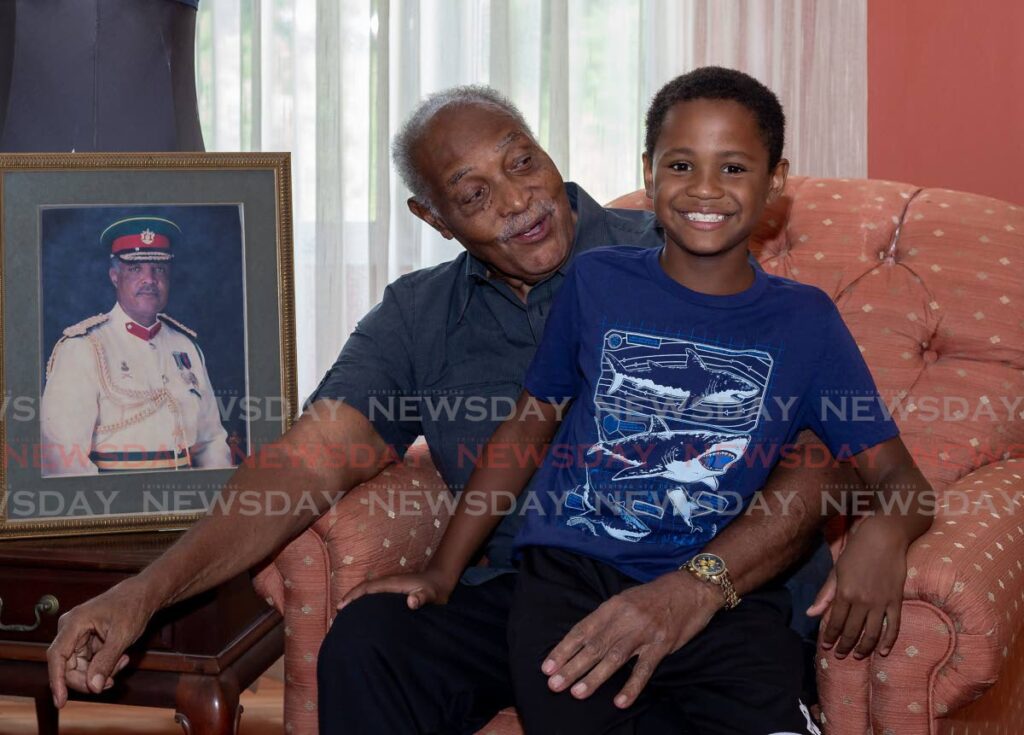
“If in 1962 Dr Rudranath Capildeo, Lionel Seukeran and Simboondath Capildeo had taken that (divisive) stance, who knows...we may not have been an independent country today. We may have probably still been under British rule.
“There’s absolutely nothing wrong with agreeing to disagree, once we are not disagreeable. I think it’s sad to see what passes now for politics as compared to 1962.
“My advice will be to the politicians, to stop the bickering and think of the country.”
Baden-Semper said he is concerned over the spate of crime today and hopes more programmes to facilitate youth development will be introduced.
“When fellas were threatening you, they would threaten to cuff you down outside and thing. But now they’re shooting you. So life has changed, and one has to be much more careful now. So you can’t just walk around the Savannah and go there in the night and do the things we used to do in our days, because nowadays somebody will stab you or threaten you or kill you or something.”
While a lot happened throughout both men’s military careers, there are moments they will never forget.
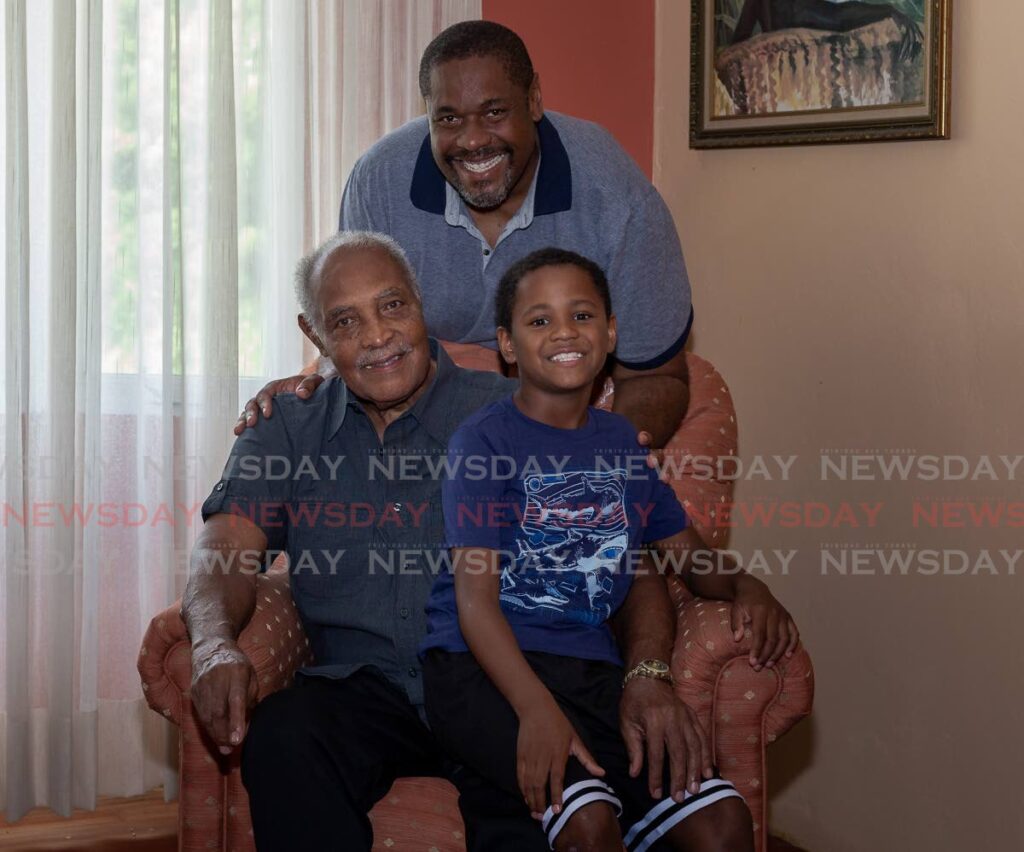
For Brown, the capstone of his career was also a part of TT’s history, and one he hopes is never repeated: he commanded the regiment against insurgents during the 1990 attempted coup. Describing that time as the darkest hour in the country’s history, Brown said it was a traumatic experience for everyone who survived it.
For Baden-Semper, who retired from the military in 1989, memories of his career are more upbeat.
For one particular Independence Day, he recalls being assigned as the aide-de-camp to Dr Eric Williams. Williams found out Baden-Semper too was a QRC old boy, and they shared their experiences at the college.
“He said to the driver, ‘Driver, pass around this way,’ because he heard I went to QRC and he went there as well, and he wanted to talk about QRC. So we passed around the Savannah there and we spoke about the school.
“He was a very nice fellow, and being a QRC old boy like me, we had something in common.”

Comments
"Side by side we stood: Soldiers reflect on Independence Day"